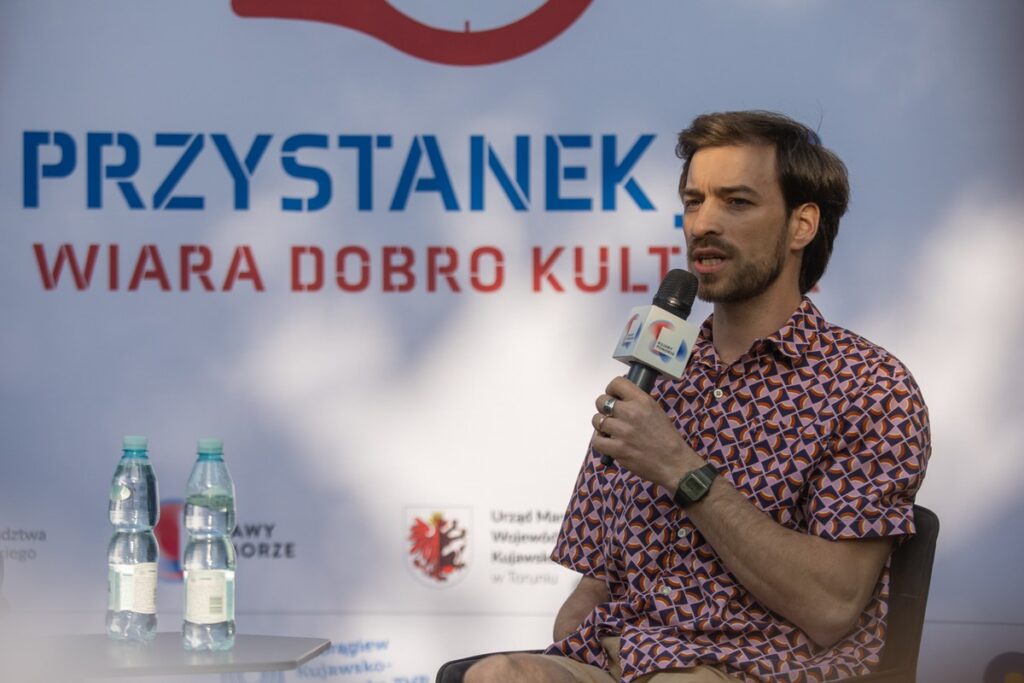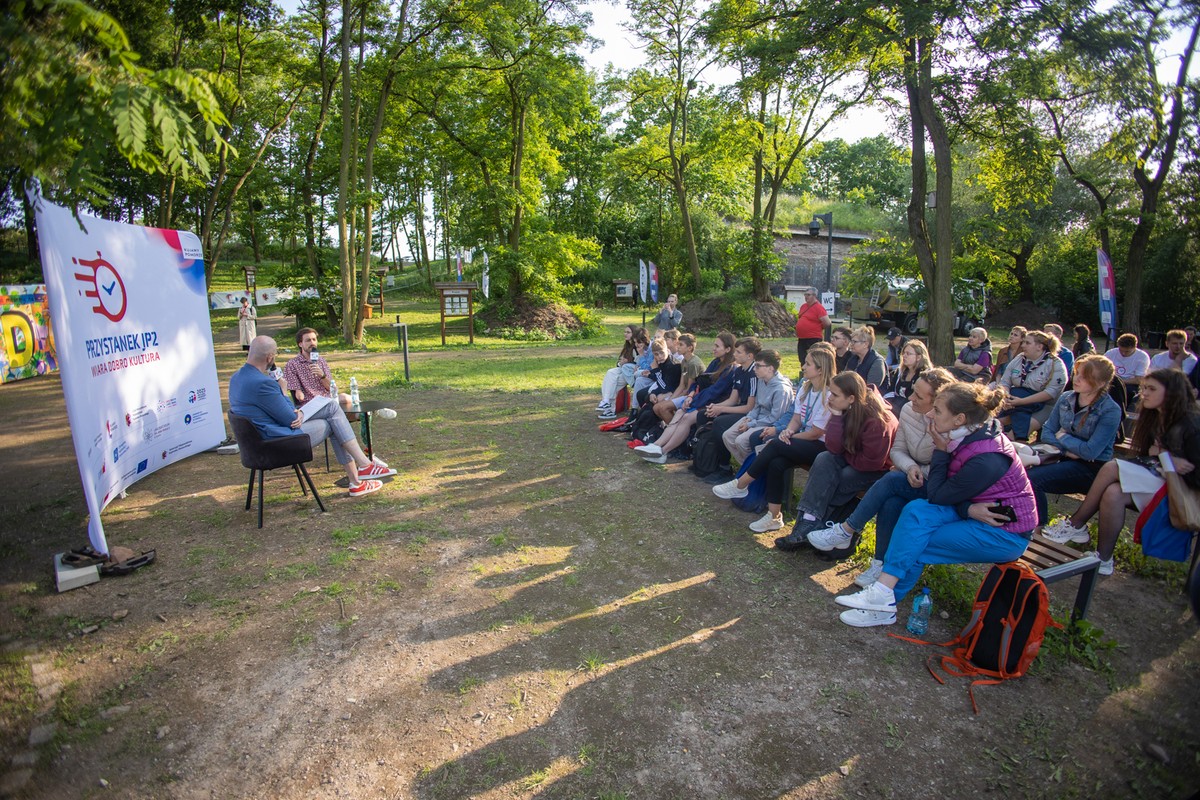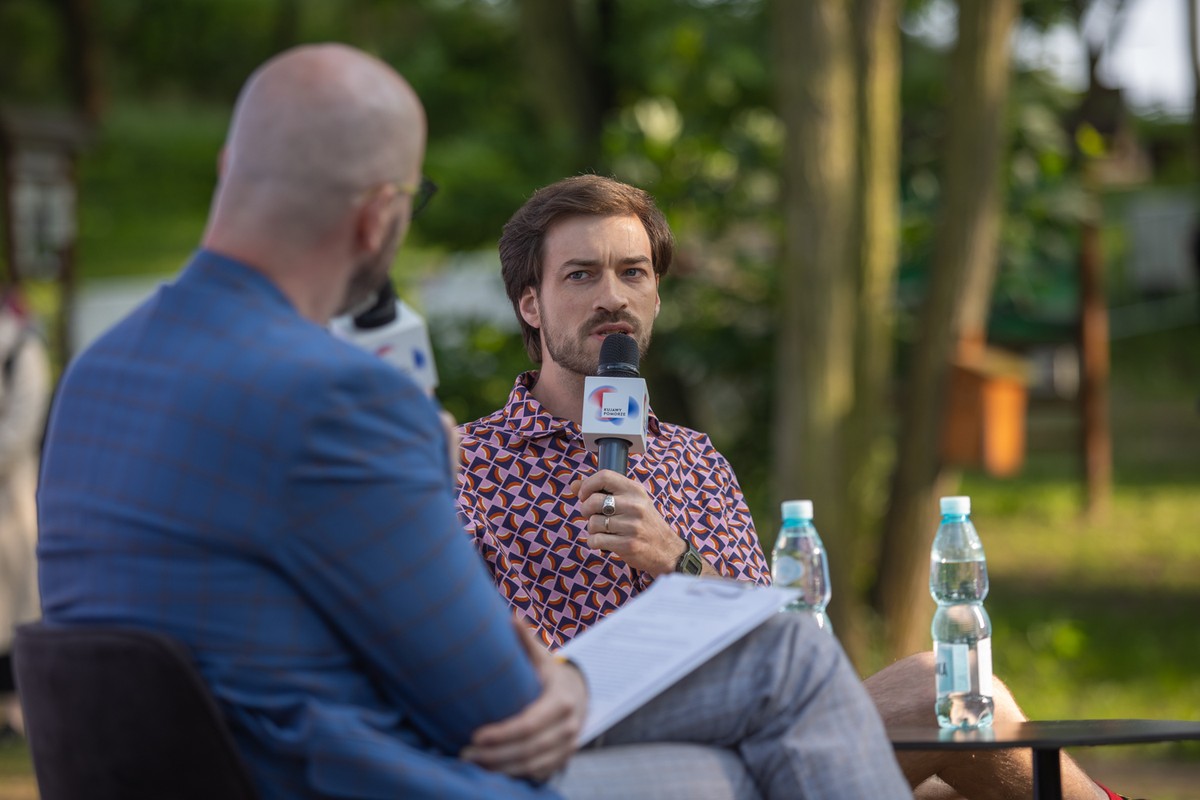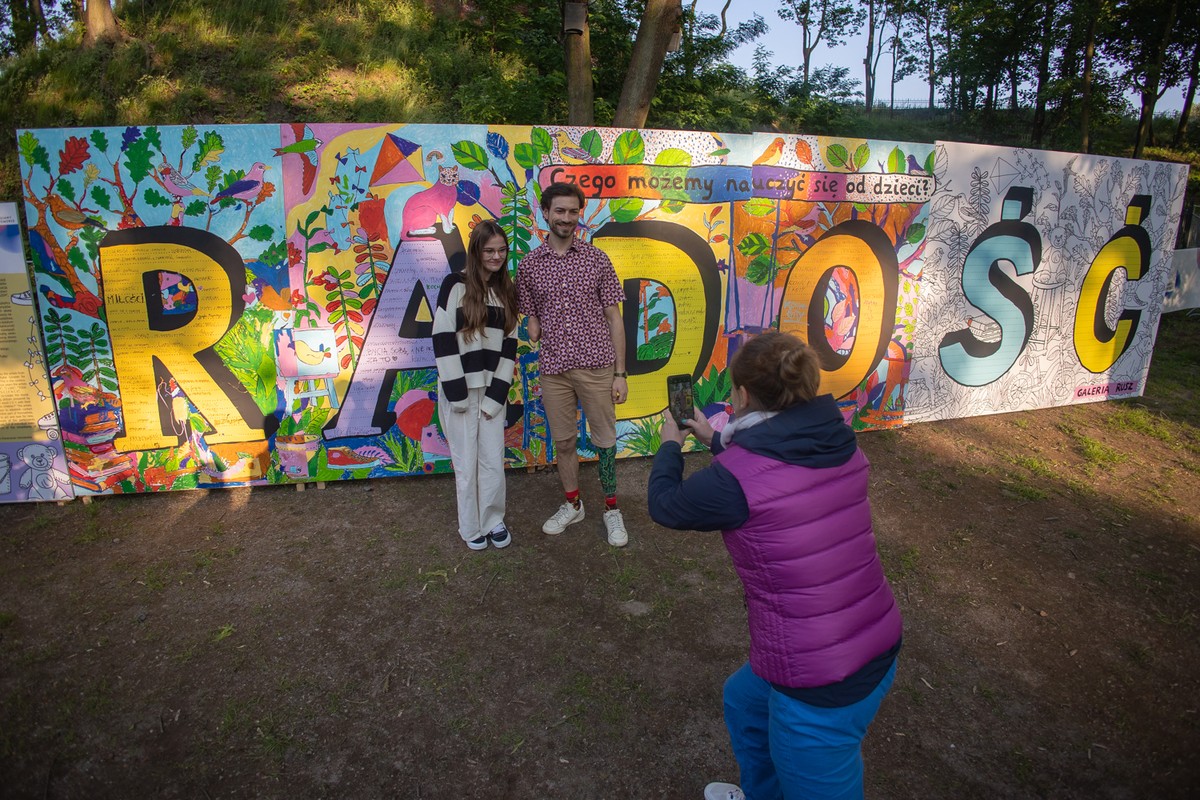
I am talking about my experiences
A conversation with traveller, conqueror of both poles and motivational speaker Janek Mela
Do you feel like Jaś, Janek or Jan?
Still Jaś, even though my PESEL number indicates something completely different. I am also aware that people remember me as a young boy who conquered both poles with Marek Kamiński, so sometimes I hear the question: ‘Are you an adult now?’ I then reply: ‘Yes, I am eighteen times two’ . But I really enjoy meeting people, talking to them, and I’m glad when they want to listen to me.
Do you meet more often with young people or adults?
My meetings vary in nature. Professionally, during training sessions for companies and corporations, I am listened to by employees and managers. I also give lectures in cultural centres, libraries and sometimes in schools. That’s why the meetings are so varied, and that’s cool because I never get bored.

Janek Mela na Przystanku JP2, fot. Mikołaj Kuras dla UMWKP
What kind of audience do you work best with?
The most appreciative listeners are people from marginalised communities – troubled youth, children from youth educational and socio-therapeutic centres, people experiencing homelessness, and prison inmates. These meetings are the most challenging for me. If I am not authentic in prison, if I start embellishing my stories, the listeners will simply leave. They are very genuine in their perception of what I say.
What do you say to be authentic?
I share my experiences, talking about my crises, how I got through them and who helped me. I don’t give a ready-made recipe for life. I try to give tips, to offer small hints about what to look for in order to change your life at least a little. I speak without sugarcoating, without preaching, because everyone has their own story and perceives my message in their own individual way. I believe it is worth sharing your experiences and emotions, which, as it turns out, are very similar.
At Przystanek JP2 [12 June], you talked about your difficult relationship with your father. There was silence because the young people were listening to this story very carefully.
I think that the subject of difficult parenting, especially the father-son relationship, is still a taboo subject. We keep talking about the stereotypes we grew up with over the years. According to them, fathers were supposed to provide for their families, and few people wondered what they felt and experienced in crisis situations, which were not uncommon. Family relationships suffered as a result. I am very happy that this is changing. Today, we talk openly not only about male depression, but also about male emotions.

Janek Mela na Przystanku JP2, fot. Mikołaj Kuras dla UMWKP
You talk about difficult generational relationships not only at meetings with children, but also with fathers. Does it help that you are a father yourself?
Yes, and when I talk about such relationships in the men’s ward of a prison, it is difficult for me because there are fathers among the audience who, for various reasons, do not have good relationships with their children. At meetings with young people, I notice their reaction to the topic I raise. Young people do not show their emotions outwardly, but sometimes I can see them. There are many wounds. It is good that they can hear about my life, my difficult situations and how I dealt with them. I hope it will help them.
Do young people tell you about their problems?
Sometimes they come up to me after meetings, but more often they write messages. Sharing difficult moments in their lives requires a lot of courage. I think young people want to talk and expect understanding.
How has this changed over the years?
When I started meeting young people in 2004, their world was completely different. First of all, there was no social media. I also didn’t discuss the topic of teenage depression, which is unfortunately becoming more and more prevalent today. Ten years ago, I received invitations to schools to meet an interesting man who, despite his disability, had conquered two poles in one year. Today, I receive phone calls from teachers who say directly: ‘Mr. Janek, we had a suicide attempt at school and we would like you to talk about living with disabilities and how to cope in difficult times.’ This shows how big the problem of depression among young people is. We are also a more fragile, sensitive society, less accustomed to confronting our feelings and emotions ourselves. Face-to-face conversations have been replaced by instant messaging. There, you can change something, improve something, and instead of a live reaction, you can paste emoticons. For our generation, conversation is normal, but for many young people it is no longer so. For them, it is simply too risky. They are afraid of judgement, confrontation and responsibility. Spoken words cannot be changed or taken back, as they can in chat.

Janek Mela na Przystanku JP2, fot. Mikołaj Kuras dla UMWKP
Your meetings are authentic, but also spontaneous. Do you feel a great responsibility for your words?
Yes, of course. When talking objectively about various things that I have worked through, I may say something that will upset another person. I am aware of this responsibility. When talking about controversial, sensitive issues, I try not to use irony or cynicism, and I don’t take the risk of being misunderstood. I have a lot of distance from myself and I can joke about my disability, but that doesn’t mean that another person with a disability can also joke about themselves.
But don’t young people perceive you as a boomer [an older person who doesn’t understand the problems of young people]? Unless you feel like one yourself?
I feel a little bit like that (laughs). I’ve had a Facebook account for a long time, but I’ve only been on Instagram for a year and I have to force myself to post there regularly. I admire young people who ruthlessly record all sorts of things and then post them online. I don’t do that, and in that respect I feel like a boomer. Fortunately, I have two younger sisters, I spend a lot of time with young people, I watch youth TV series, so I have contact with their world and thanks to that I understand it better. I also hope that thanks to this I have helped many of them.
July 2025


